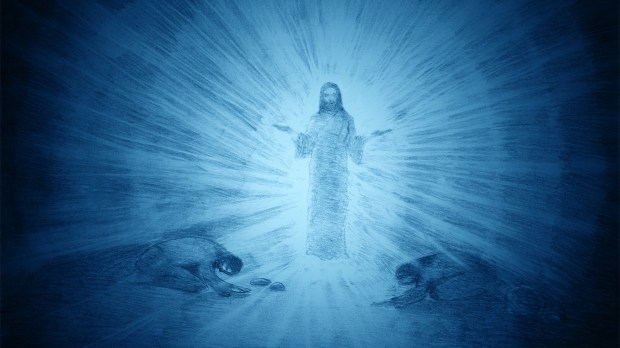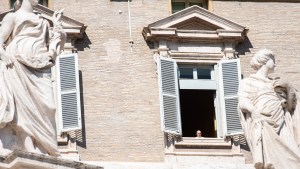To prepare yourself for the feast of the Transfiguration of the Lord this weekend, treat yourself to a viewing of the entrancing 1991 film Enchanted April.
A new sphere of contemplation
I’ll set it up for you. Shortly after World War I, four British women — who do not know each other — together lease a fully furnished, hilltop castle on the Italian Riviera for the month of April. Each brings what is most broken in her life: a troubled marriage; dreariness verging on despair; chronic dissipation; loneliness and grief cloaked in crankiness.
But once the weary tenants reach this place of spellbinding beauty — San Salvatore — they start to change. St. John Henry Newman says that, at the Transfiguration, the Apostles “were introduced into a new range of ideas, into a new sphere of contemplation.” And that’s what happens to these women. The spot with its splendor generates a mesmerizing effect, bringing out the best in them. By the end of the picture, all the guests are transfigured … which is the point of the film (as its closing frame shows).

Grandeur beyond the heavens
The women sense that, for the sake of their own sanity, they need to escape from the city and the squalid sameness of everyday life. They seek the beautiful, for, as St. Gregory of Nyssa says, “in the seeking of the beautiful, the soul, rising and leaving behind all notice of unimportant things, arrives at a knowledge of the grandeur beyond the heavens.” The mystery of the Transfiguration aims to give us that very knowledge. One of the prayers from Mass asks, “Bless your faithful so that they may at last attain that glory whose beauty Jesus showed in his own Body.”
Hope leads the little band to this anointed site, driven as they are by the expectation that something good will happen. But it exceeds all expectations. What was meant to be an experience of merely pleasant diversion becomes one of radical conversion. As the cantankerous Mrs. Fisher muses: “Why am I so restless? I feel something is going to happen. It’s this place. This feeling I’m suddenly going to burst out.”
The Greek word for “transfiguration” is “metamorphosis.” The characters’ own little Tabor makes them “feel flooded with love.” And everything instantly changes: “I was very stingy with love back home. I used to measure and count it out. The emptiness of it all.”
The transfigured Jesus promises that everything in our life can change … especially those things, those people we have given up on. There are potentials in you that have not been reached … horizons before you not yet glimpsed … possibilities within your grasp still to be claimed.
Becoming what we behold
St. Thomas Aquinas says that, through his Transfiguration, Christ wished “to enkindle all the faithful with the desire for that glory that he showed forth in his radiant body.” In other words, the Transfiguration means to be a kind of mystic mirror. The attraction and enticement of Tabor move us to want to become what we behold. Whatever is petty about us, whatever is small-minded and calculating, whatever is pessimistic and dour, self-absorbed and self-assertive … all that has met its match in the Savior at Tabor’s summit.
St. Leo the Great describes the “enchantment” we can count on thanks to the miracle of the Transfiguration:
Through the Transfiguration the whole body of Christ was to understand the kind of transformation that it would receive as his gift. The members of Christ’s body were to look forward to sharing in that glory which first blazed out in Christ.
One character, stunned by the beauty of the Castle of the Holy Savior, gushes,: “Do you suppose it’s all real? Were you ever in your life so happy? I suppose you realize we’ve gone to heaven.” That’s the grace of the Transfiguration. We can pray to Jesus with Fr. Hans Urs von Balthasar: “You transfigure enigma and replace it with mystery.”
~
Find Fr. Peter John Cameron’s reflection on the Sunday Gospel each week here.



